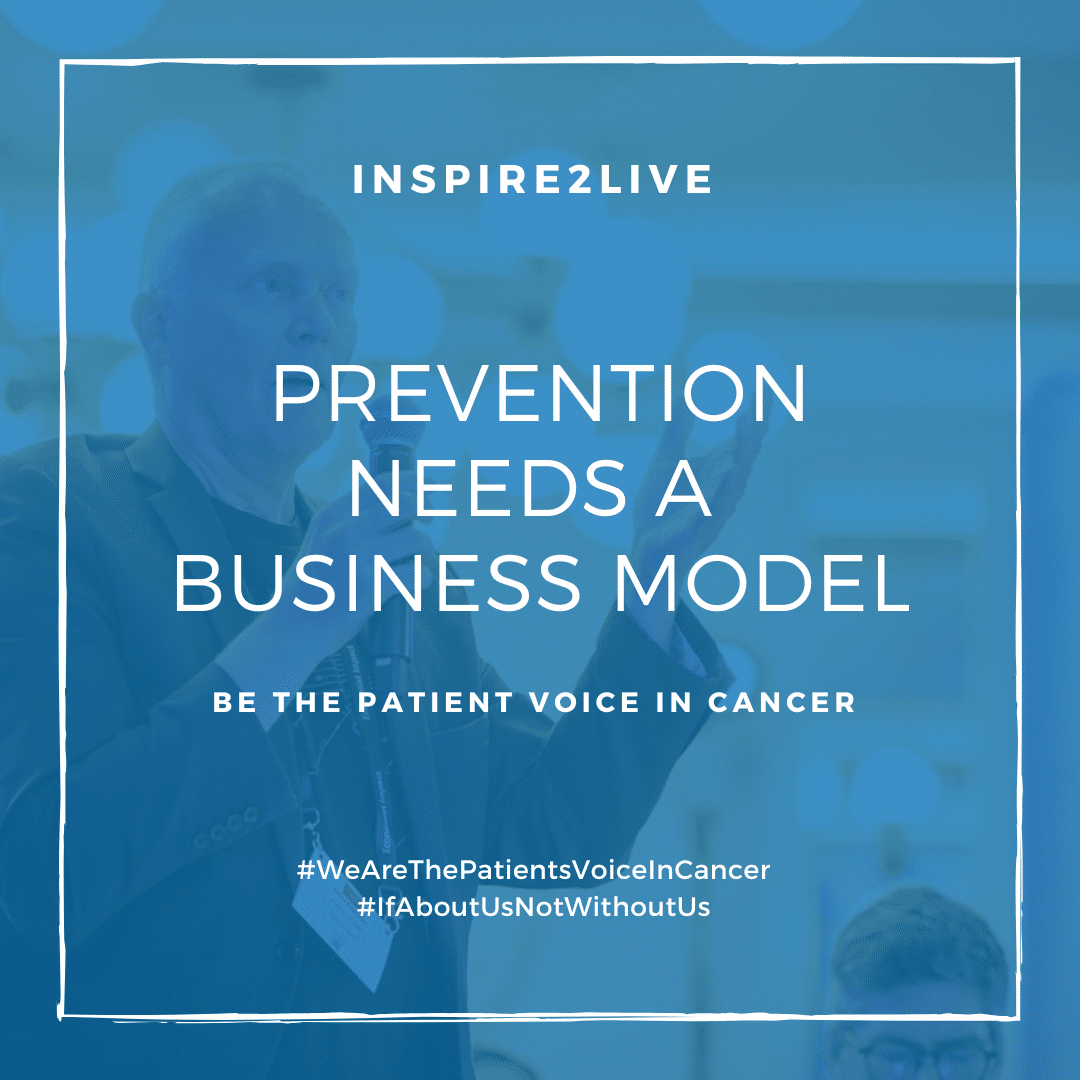On June 10 and 11, Inspire2Live attended the Economist Impact 10th annual World Cancer Series Europe congress: ‘Shaping the cancer-control agenda’. One engaging session explored a crucial question: What should be the priority for the near and distant future? The answer: Prevention!
I have worked in oncology since 2005, and prevention has always been the priority. Let me be clear: in 2035 and again in 2045, the priority will still be prevention. And rightly so—because at least 50% of all cancers are preventable. But if everyone agrees that prevention should come first, why are we not acting accordingly? The answer is painfully simple: there’s no profit in prevention. More patients mean more revenue. Hospitals need to remain financially viable, and many private clinics rely on a steady flow of patients.
Yet, I disagree with myself on one point. I believe we can build a sustainable model around prevention—we just haven’t found it yet. And this is why I value the Economist Impact congress: it allows honest discussion about money. Can prevention be profitable? Can it generate return on investment? These aren’t taboo questions – they’re essential.
Until we develop a business model for prevention, we will continue attending conferences where we all nod in agreement, proclaiming prevention as our priority – and then carry on with business as usual. Preventing cancer is not only ethically right – it is economically sound. Take tobacco: In 2016, the Economic Research Foundation published an analysis of the net economic cost of tobacco use in the Netherlands. Even in the most optimistic estimate, the net cost to society was €21 billion per year. The worst-case scenario? €43 billion annually. Clearly, there is a business case for prevention. So why aren’t we taking action? Because the industries that cause preventable cancers—tobacco, alcohol, and ultra-processed food—lobby relentlessly. But change is stalled because it is easier, more profitable, and politically safer for healthcare to remain focused on treatment instead of prevention.
So, what now? Cancer is our problem—the patients’, the survivors’, the advocates’. Unless we truly claim it as such, we will not prevent future cancers. We, the patient community, are the most powerful voice for prevention. We know what it means to suffer from cancer. We know what it means to die from it. Every year, 10 million people die from cancer—at least 5 million of those deaths are preventable. That is more than the annual death toll from the wars in Gaza, Ukraine, and Sudan combined. Tobacco alone kills more people than all arms do.
Patient advocates globally: unite. Tell the tobacco, food, and alcohol industries—and your government—that if they fail to act on prevention, they are complicit in these deaths.
And let me express my hope: that the next Economist Impact congress will not just discuss prevention but build the business model that finally brings it to life.
Peter Kapitein
Patient Advocate, Inspire2Live

